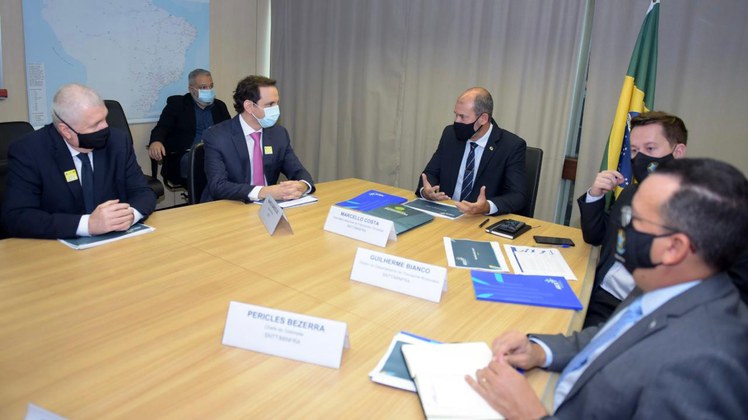On 18 February 2021, the Ministry of Infrastructure of Brazil (MInfra) and the Brazilian Association of Road Concessionaires (ABCR) signed an agreement that includes the 10 priorities for the transport sector. One of the priorities is the “Regulatory framework of the International Road Assessment Programme (iRAP)”.
Among the expected objectives are to improve transport and transit services and the competitiveness of infrastructure, national logistics, more efficient use of public resources and increased participation of the private sector in the sector.
The National Secretary for Land Transport of MInfra, Marcello Costa, and ABCR’s CEO, Marco Barcelos, signed the Technical Cooperation Agreement 1/2021.
“With this partnership, we are able to take a very big step in these two years. We are doing something important today,” said Costa, who classified the partnership with the association as bold. Among the most important actions of the agreement are the guidelines and regulation of free flow and dynamic weighing.
According to ABCR’s CEO, the private sector “feels the difference” in the treatment of the current government. The signing of the cooperation agreement is one of the signs of progress in the relationship between the public authorities and the Brazilian business community. “We have been working with a technical dialogue in order to raise the regulatory curve. We will not save efforts to reach the objective of this cooperation agreement,” said Barcelos.
Under the terms of the agreement, which is effective for 12 months, there is no provision for transferring funds between the federal government and ABCR. The association will be responsible for the administrative and financial management of the studies. MInfra, on the other hand, must ensure that “there is no sharing of asset assets” in the execution of the partnership, in addition to disclosing the objectives and analyzing the report on the implementation of the cooperation agreement.
Priority axes of the cooperation agreement include:
- Regulation modernization (ANTT agenda);
- Drafting improvements in road exploration plans (PER);
- Free-flow guidelines and regulations;
- Dynamic weighing guidelines and regulation;
- Guidelines and regulations of the International Highway Assessment Program (iRAP);
- Convergence for communication actions;
- Elaboration of a new governance model for the use of the Technological Development Resource (RDT) by the National Department of Transport Infrastructure (DNIT);
- Maintenance concession guidelines and regulations;
- Improvement of the contract risk matrix;
- Information sharing with elaboration of BI panels.

















